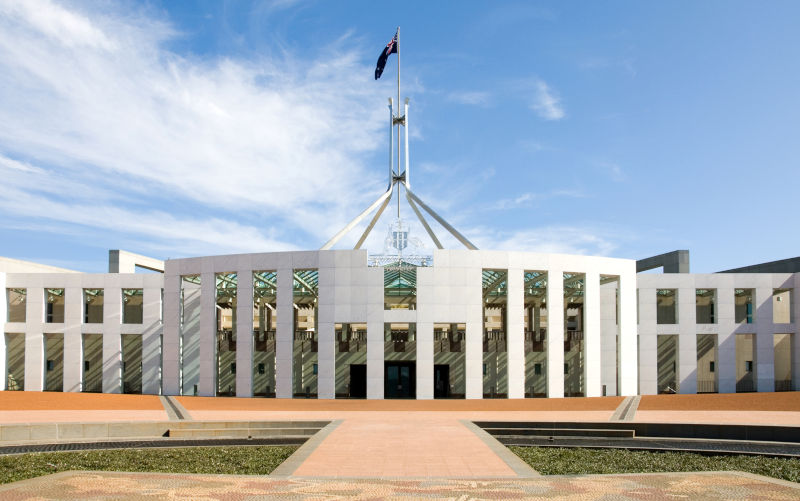Don’t mistake truth for hate, prime minister
September 25, 2025
Anthony Albanese says Palestinian children are taught to hate. My daughter’s first trip home proves otherwise.
When Prime Minister Anthony Albanese stood at the UN this week and claimed that Palestinian children are taught to hate, I thought of my daughter Sarah. She was only four years old when I first took her to Palestine. By the time we left, she understood what occupation and injustice mean – not because I taught her, but because she lived it.
In 2010, I travelled with my two young daughters to Palestine. We were living in Abu Dhabi at the time, but I was determined to take them home before their fifth birthdays. Not all Palestinians are even allowed to visit their ancestral land. Because we held Jordanian passports and a fragile permit known as “reunion status”, my daughters had a rare opportunity to see Palestine. If a child visits before the age of five, that status can be passed on. For many Palestinians, that right is forever out of reach.
Our journey began at the Jordanian border. Palestinians don’t simply carry a passport. We carry layers of papers and permits that decide where we may or may not exist. I travelled with a Jordanian passport, a yellow card marking me as a Jordanian-Palestinian, an Israeli-issued Palestinian ID, and a temporary Israeli permit that allowed me to re-enter Palestine. My 14 uncles and aunts, and 65 cousins had only Jordanian travel documents without nationality – stateless, denied belonging on every side of the border.
If you know anything about the Jordanian-Israeli border, you know it is not simply a crossing. It is designed to humiliate and to exhaust, to make returning feel impossible. And yet, Palestinians are stubborn. Year after year, despite the humiliation, we endure the borders because stubbornness is how we’ve survived 77 years of dispossession.
That day, after hours of waiting, we crossed the Jordan River in crowded buses. Sarah was relentless with her questions:
“Mama, why are we in a bus?”
“Mama, why is the soldier shouting at you?”
“Mama, what language are they speaking? Are we going to Palestine? Then why don’t they speak Arabic?”
When we finally reached the Israeli side, the humiliation deepened. Soldiers shouted “Ishlaḥ” – take off your shoes. We were herded into lines. My two-year-old cried when her pink Sketchers were taken and thrown into a pile with dozens of others. Then came the strip searches. In the cold of late winter, exhausted and hungry, my daughters sobbed as we were forced to undress under the gaze of armed soldiers.
And still Sarah asked, with a child’s insistence:
“Mama, why are there so many soldiers pointing guns at us? Mama, are we in Palestine yet?”
How do you explain systematic degradation to a child? There is no bedtime story version of occupation.
After more buses, more checkpoints, more shouting, we finally reached the West Bank. The drive from the border to Jenin should have taken 40 minutes. It took three hours. Each checkpoint meant another round of soldiers, questions and searches. Sarah noticed everything: the cars with Israeli yellow plates that passed freely while we waited; the walls cutting through the land; the settlements gleaming on hilltops while Palestinian villages crumbled below.
The very next day was 31 March – Land Day. Every year, Palestinians honour our land and remember those killed defending it. And, like every year, the Israeli army invaded. Clashes broke out. Tear gas seeped into homes. Gunshots echoed through the streets.
And my daughter, just four years old, asked the question that cut the deepest:
“Mama, isn’t this Palestine? Then why is the Israeli army here?”
It took her only seven days — one week — to grasp what occupation and apartheid mean.
When we returned to Abu Dhabi, Sarah carried Palestine with her. She went back to school full of stories, bitter, angry, truthful stories – that she told her classmates. She spoke of checkpoints, soldiers, guns and walls with the rawness only a child can have.
The next day a colleague approached me. His daughter was in Sarah’s class, and she had come home speaking about the occupation. He asked me, almost accusingly, with his white British privilege , “How do you teach your daughter to hate at such a young age?”
I told him: I don’t have to teach her to hate. There is no sugar-coating occupation. There is no gentle way to explain apartheid.
So, Mr Albanese, hear this: we Palestinians teach our children love. Love of land, love of family, love of dignity and justice. But when a child loses their home, when they grow up in a refugee camp, when they are starved, when they bury their parents, when they become carers for their siblings at the age of eight, when they watch bombs fall on their schools, when they see guns pointed at their mothers – don’t expect them to turn the other cheek like a perfect victim.
Our children learn what injustice is before they even learn to read. And they carry that truth with them, wherever they go.
When you accuse Palestinians of teaching hate, you deny the violence of occupation and you deny the innocence of our children. What Sarah saw at four years old was not hate. It was power, humiliation, apartheid. And she saw it not in textbooks or classrooms, but in the daily reality forced on Palestinians.
If Palestinian children sound angry, it is because they have seen the world at its cruellest before they have had the chance to live freely. If they speak of injustice, it is because it is their reality. Don’t mistake truth for hate, prime minister.
The views expressed in this article may or may not reflect those of Pearls and Irritations.

